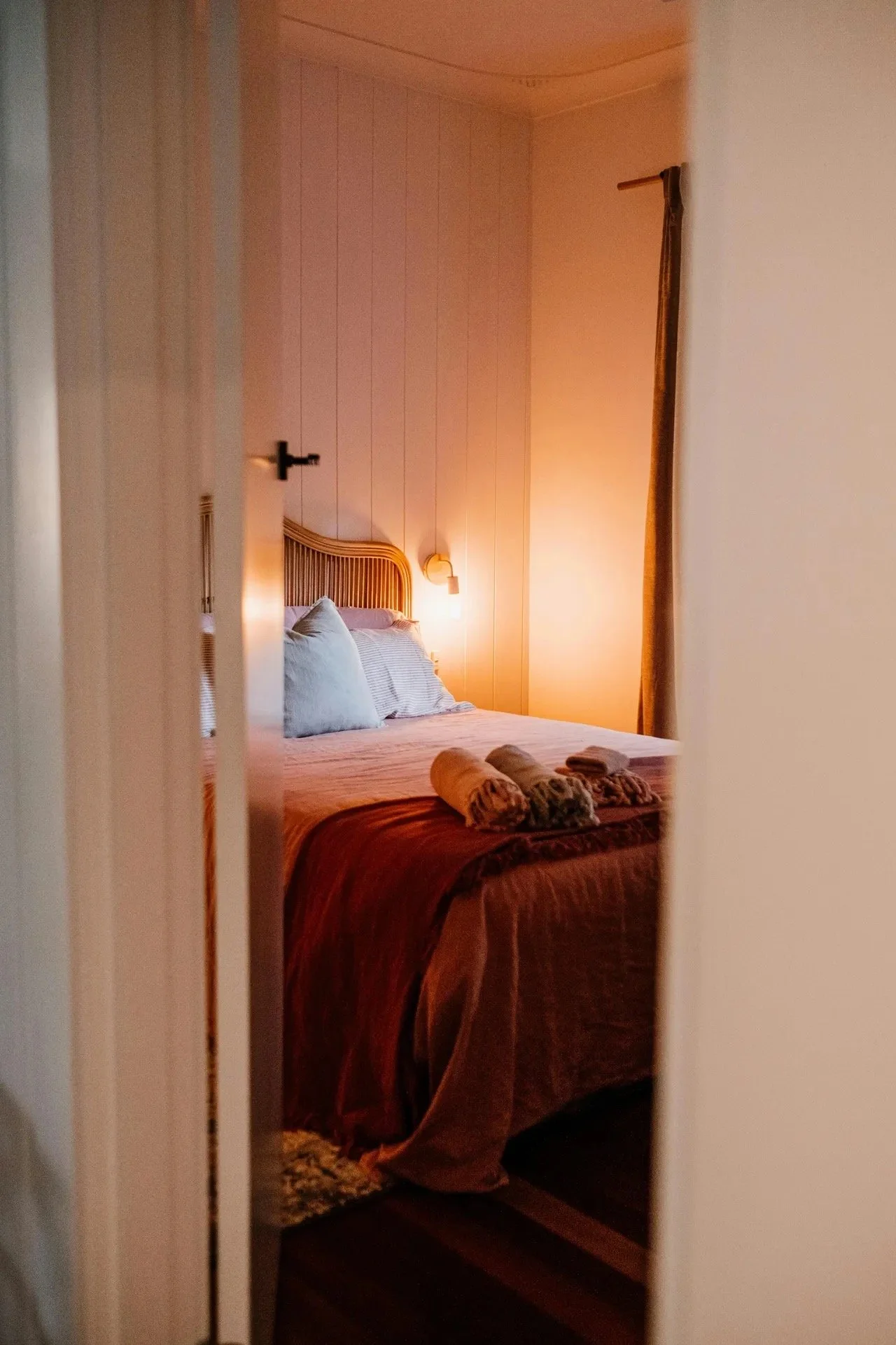Sleepless and Frustrated? 10 Ways to Outsmart Insomnia
Ah, insomnia. The unwanted late-night companion that shows up uninvited, whispering, “Remember that embarrassing thing you did in 2009?” If you’ve ever found yourself staring at the ceiling at 3 a.m., bargaining with the sleep gods, you’re not alone. Sleep struggles are real, but before you resign yourself to a lifetime of groggy mornings and coffee dependency, let’s talk solutions.
1. Stop Treating Your Bed Like a Multipurpose Room
Your bed should have two purposes: sleep and... well, you know. If you're working, scrolling, binge-watching, or eating in bed, your brain stops associating it with rest. Basically, you've trained your mind to think, "This is the place where we watch cat videos and panic about emails." If that's the case, no wonder sleep won't come. Keep the bed sacred for sleep and intimacy only.
If you find yourself tossing and turning for more than 20 minutes, don’t force it. Lying there, growing frustrated, only makes insomnia worse. Instead, get out of bed and do something calming in another room, like reading or gentle stretching, until you feel sleepy. This helps rewire your brain to associate your bed with sleep rather than restlessness. Just be sure to avoid anything stimulating (no work emails or late-night decluttering sprees).
2. Set a Sleep Schedule (and Actually Stick to It)
Your body loves routine. That’s why toddlers get cranky when their nap schedule is off. If you’re going to bed at wildly different times each night, your internal clock gets thrown off. Pick a bedtime and a wake-up time, and—here’s the hard part—stick to it, even on weekends. Yes, that means resisting the urge to sleep in until noon on Saturday. This consistency helps regulate your circadian rhythm, making it easier to fall asleep and wake up naturally. You can allow for some flexibility, but try not to shift your wake-up time by more than an hour, even if you didn’t sleep well the night before.
One simple way to reinforce this routine? Get some natural light first thing in the morning. Neuroscience shows that exposing your eyes to sunlight in the early morning and evening, even for just five minutes, plays a crucial role in regulating your circadian rhythm. Morning sunlight helps set your internal clock by signaling your brain to stop producing melatonin—the hormone that makes you feel sleepy—and to start producing it again about 12 to 14 hours later. This aligns your sleep-wake cycle with the natural light-dark pattern, making it easier to feel alert in the morning and drowsy at night. So, even if you had a rough night, waking up at your scheduled time (within that one-hour window) and stepping outside for some sunlight can help keep your body’s natural rhythm on track and improve sleep quality over time.
3. Wind Down Like You Mean It
If you expect to go from full-speed-ahead mode to peaceful slumber in two minutes flat, you’re setting yourself up for failure. Your brain needs transition time. Try creating a wind-down routine that signals “hey, it’s time to power down.” This could include reading, stretching, journaling, or listening to something relaxing (just not true crime podcasts). Your nervous system will thank you.
One great journaling exercise to try is the Three Good Things practice. Each night before bed, write down three positive events from your day and reflect on your role in making them happen. It sounds simple, but research shows this small habit can not only boost happiness but also improve sleep quality. Ending the day focused on gratitude helps quiet racing thoughts and shift your brain into a more relaxed state. A solid wind-down routine isn’t just about what you don’t do before bed (like scrolling endlessly). It’s also about creating a nightly ritual that tells your body, “We’re done for the day. Let’s sleep.”
4. Cut the Caffeine (At Least in the Afternoon)
Caffeine has a half-life of about 5-6 hours, meaning that afternoon cup of coffee could still be hanging out in your system at bedtime. If you’re downing lattes at 4 p.m. and wondering why you can’t sleep at 11, there’s your answer. Try switching to herbal tea in the afternoon and see if it makes a difference.
Caffeine works by blocking adenosine receptors in the brain, which prevents sleepiness from setting in and can delay sleep onset. It also reduces sleep efficiency, meaning you spend less time in the deep, restorative stages of sleep. If cutting caffeine sounds impossible, consider alternatives like matcha, which contains L-theanine—a compound that promotes relaxation and may help offset caffeine’s stimulating effects. Other options include herbal teas or chicory coffee, which are naturally caffeine-free and can be enjoyed without interfering with your sleep.
5. Ditch the Screens Before Bed
Blue light from screens messes with your melatonin levels, making it harder for your body to recognize it’s bedtime. If you’re doomscrolling right before bed, you’re not only feeding your anxiety but also delaying sleep. Try setting a tech curfew—at least 30-60 minutes before bed. If you must look at your phone, use a blue light filter or switch to night mode. But honestly? Your notifications can wait.
Additionally, switching to warm-colored, dim lighting in your bedroom can create a more sleep-friendly environment. This small change signals to your brain that it’s time to wind down, making it easier to transition into restful sleep.
6. Manage That Overactive Mind
If your brain turns into an overthinking machine the second your head hits the pillow, you’re not alone. Racing thoughts are a top culprit behind sleep struggles, making it nearly impossible to wind down. Instead of letting your mind run wild at bedtime, try getting ahead of it earlier in the day. Scheduling a designated “worry time” in the afternoon—giving yourself 10-15 minutes to write down your concerns—can help keep those thoughts from hijacking your night. And if your brain insists on replaying awkward moments from years ago, remind it: We’re not doing this right now.
Meditation, deep breathing, or progressive muscle relaxation can also help quiet your mind. Another effective approach is shifting your focus to something calming, like visualizing your happy place, mentally replaying a peaceful memory, or repeating a reassuring mantra, such as I am safe, and I can rest. You might also try Yoga Nidra, often referred to as “yogic sleep,” a guided relaxation practice that helps your brain enter a state of deep rest, promoting the same alpha and theta brain waves associated with light sleep and relaxation.
7. Watch What You Eat Before Bed
What you eat before bed can have a bigger impact on your sleep than you might think. Heavy meals too close to bedtime can cause indigestion, while going to bed hungry isn’t ideal either—low blood sugar can lead to restlessness and even wake you up in the middle of the night. If you need a bedtime snack, aim for something light that combines protein and healthy carbs, like yogurt with granola, a banana with peanut butter, or whole-grain crackers with cheese. These foods help keep blood sugar stable and may promote the production of serotonin, which supports melatonin production, your body's natural sleep hormone.
At the same time, it’s best to avoid foods that can interfere with sleep, like spicy or greasy meals that may trigger acid reflux, or sugary snacks that can cause blood sugar spikes and crashes. Drinking alcohol in excess can also backfire—it might make you feel sleepy at first, but it disrupts REM sleep, leading to poor-quality rest. As with any dietary advice, keep your personal health needs in mind, and if you’re working with a doctor or dietitian, check with them to see what’s best for you. Everyone’s body responds differently, so paying attention to how certain foods affect your sleep can help you make the best choices for restful nights.
8. Make Your Bedroom a Sleep Haven
Your sleep environment matters. If your room is too bright, noisy, or hot, sleep will be elusive. Aim for:
A cool room (around 65°F is ideal)
Blackout curtains or an eye mask
White noise if background sounds bother you
Comfortable pillows and a mattress that doesn’t make you question your life choices every time you lie down
9. Be Intentional About How You Spend Your Day
Regular physical activity can improve sleep quality by helping you fall asleep faster and enjoy deeper rest, but timing matters. Exercise too close to bedtime, and you might find yourself too wired to wind down. Aim for morning or afternoon workouts, and if you prefer evening movement, stick to gentle activities like yoga or stretching.
Similarly, naps can be a great way to recharge, but long or late-afternoon naps can throw off your sleep cycle. If you need a nap, keep it short—about 20-30 minutes—and schedule it earlier in the day to avoid interfering with your nighttime rest. Being mindful of when you move and when you rest can set you up for a smoother, more restorative sleep.
10. Know When to Get Help
If you’ve tried everything and still can’t sleep, it might be time to check in with a professional. Chronic insomnia is often linked to mental health conditions like anxiety or depression, as racing thoughts, heightened stress responses, and mood imbalances can make it difficult to fall or stay asleep. A therapist trained in sleep-focused interventions can help identify these patterns and provide effective strategies to manage them. One of the most well-researched treatments for persistent sleep issues is Cognitive Behavioral Therapy for Insomnia (CBT-I), a structured approach that helps break unhelpful sleep habits and retrain your brain for better rest.
Sleep is too important to just suffer through night after night. If you’re constantly exhausted, irritable, or struggling to focus, seeking help isn’t just a good idea—it’s a necessary step toward better health. A doctor or sleep specialist can assess whether an underlying medical issue, such as sleep apnea, restless leg syndrome, or hormonal imbalances (hello, perimenopause!), is disrupting your sleep. A dietitian can also check for nutrient deficiencies, like low magnesium or iron, that might be contributing to your insomnia. With the right support, better sleep is possible, and you don’t have to figure it out alone.
Improving Sleep and Easing Insomnia for Women
Good sleep isn’t just about feeling rested; it impacts your mood, focus, and overall health. If insomnia has been your unwanted bedtime companion, try incorporating some of these changes and see what works for you. And remember, getting frustrated about not sleeping will only make it worse. Be patient with yourself.
If stress, anxiety, or an overactive mind are keeping you up at night, therapy can help. At Graceful Mind Therapy, I support women in managing anxiety, quieting racing thoughts, and building healthy routines that promote both emotional well-being and restful sleep. If you’re curious about my approach, you can learn more on the About Maria page. When you’re ready to take the next step toward better sleep and a calmer mind, I’m here to help you begin.
Now go get some rest—because life’s too short to be exhausted all the time.
by Maria Perdomo-Torres, LCSW-S, MHA, CFSW






